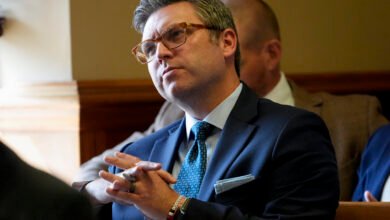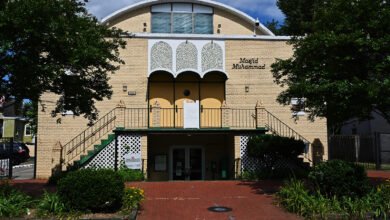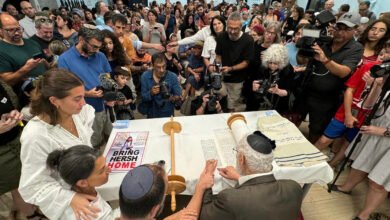ATLANTA (RNS) — Twenty minutes outside downtown Atlanta, Vinings Lake sits along a humming thoroughfare connecting Veterans Memorial Highway to the affluent suburbs north of the city. With its white steeple and brick exterior, it could easily be mistaken for another Southern Baptist church adorning America’s Bible Belt.
But façade aside, the community no longer thinks of itself strictly as a church.
“We’re an ever-evolving spiritual collective,” the pastor, Cody Deese, said to those gathered in the dimly lit sanctuary on a rainy Sunday in early December. “If you’re a Christian, wonderful. If you’re post-Christian, wonderful.”
Vinings Lake is one of a handful of spiritual communities across the U.S. sprouting from the soil of the exvangelical and deconstruction movements. While their Sunday morning gatherings retain the basic structure of many Christian services — music, teachings, fellowship — these collectives reject dogma, prefer questions over answers and have no intention of converting anybody to anything. Here, LGBTQ inclusion is not up for debate, people of all and no faiths are welcome and Jesus can be a savior, a radical rabbi or a metaphor, depending on your spiritual inclination.
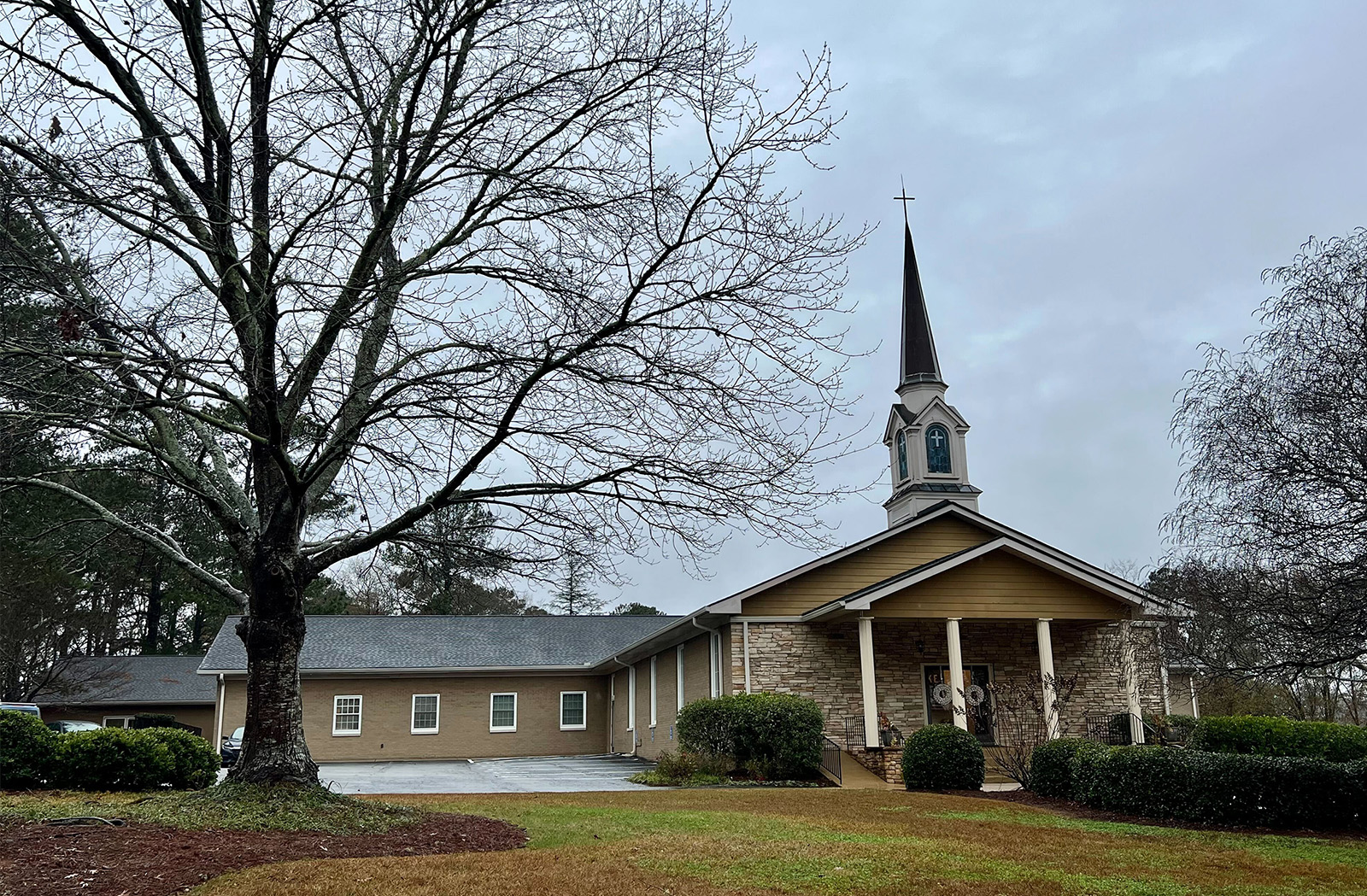
Vinings Lake in Mableton, Ga., near Atlanta. (RNS photo/Kathryn Post)
Though they are few, these communities are also emblematic of a larger groundswell of spiritual “nones” searching for new forms of ritual and belonging.
“There’s something reaching a critical mass,” said Kevin Miguel Garcia, spiritual coach and author of “What Makes You Bloom: Cultivating a Practice for Connecting With Your Divine Self.” “There’s a desire growing within people to figure out how to live meaningfully even without traditional structures. How do I live justly without baptizing myself into a faith? How do I love my neighbor, without having to proof text it with a Bible verse?”
In many ways, the evolution of Vinings Lake mirrors the spiritual path of its current pastor. Deese delivered his first sermon at age 16 and was groomed to follow the vocational footsteps of his father, a Southern Baptist pastor. But in his early 20s, he struggled to reconcile his notion of a loving God with the doctrine of hell.
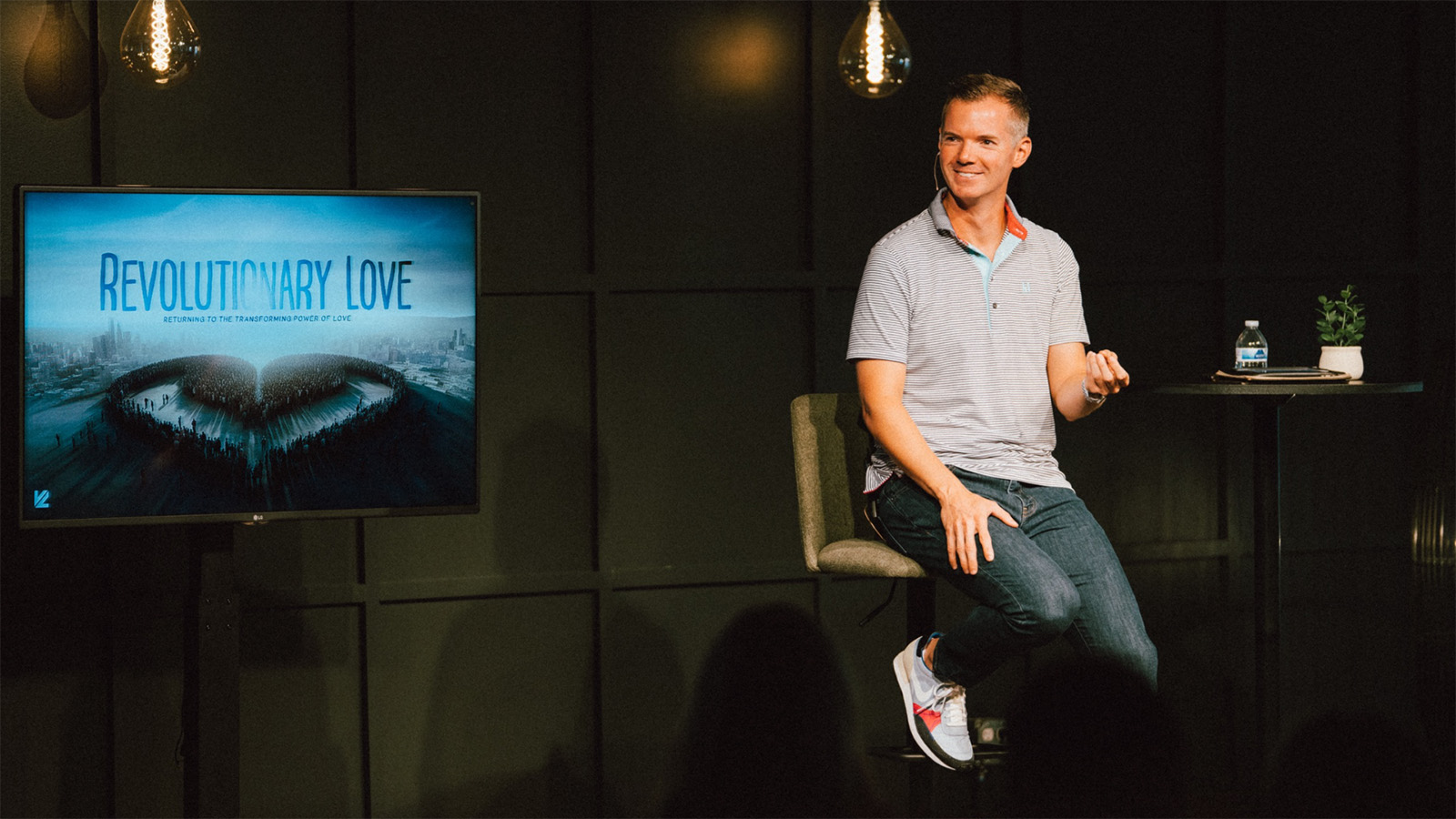
Pastor Cody Deese at Vinings Lake in Mableton, Ga. (Photo by Zorzi Creative)
Though his deconstruction journey was well underway, in 2006 Deese agreed to help his friend launch Vinings Lake, which began as a Southern Baptist church plant. In 2015 Deese was tapped to lead what had become a 700-person church. But by the end of the Trump administration, Deese’s LGBTQ-affirming theology and bold critiques of topics such as nationalism and capitalism had triggered an exodus of more than 500 people from the church. In 2021, Vinings Lake officially traded the label of “church” for “spiritual collective.”
“We knew there would be a cost. It’s not surprising for us,” said Deese. “You don’t step into the heart of the Bible Belt and try to create an ever-evolving spiritual collective, a progressive spiritual community, and expect there to be no resistance.”
Gradually, Vinings Lake began attracting newcomers such as Katie Mair. While working for an evangelical college ministry, Mair endured the death of a sibling and said she was spiritually abused by a leader in the organization she worked for. Believing in a God actively working for her good no longer felt possible, but Mair still longed for community. She found Vinings Lake by searching online for “progressive churches near me.”
Though certainty is more elusive at Vinings Lake, she said, her spirituality has never felt more authentic.
“I was never a whole person in evangelicalism,” said Mair. “I was always having to cut off part of me, or hide it, deny it or dress it up to look a little bit better.”
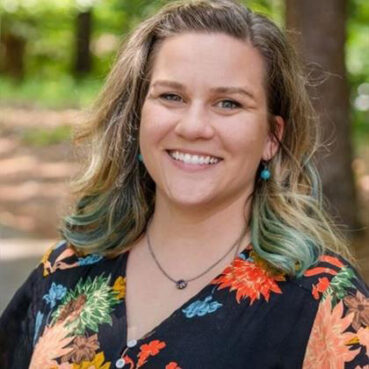
Chelsea Carver. (Courtesy photo)
It’s common for folks at Vinings Lake to have stories of religious trauma or “church hurt.” Chelsea Carver, who leads the hospitality committee and identifies as a Christian, is no exception. She chose Vinings Lake in 2018 because the community made room for her tough questions, thanked her for listening to her gut and went out of its way to avoid drawing boundaries around who’s in and who’s out.
“Vinings Lake doesn’t tell me how to think. It gives me enough knowledge to struggle with it, and that’s what I love,” said Carver.
While some parishioners jokingly refer to Vinings Lake as a “unicorn church,” its story parallels that of a Miami community, Heartway. It, too, began as a Southern Baptist church plant whose pastor wrestled with concepts such as biblical inerrancy and opposition to LGBTQ leadership and marriage.
“Everything started to unravel for me rather quickly,” Heartway pastor Danny Prada told Religion News Service. “The challenge of that was still going up and preaching a sermon every Sunday, when on the inside I was doubting the legitimacy of the whole thing.”
Eventually, Prada shared his doubts with the congregation. “That ruffled some feathers,” Prada acknowledged. But Prada’s honesty slowly attracted exvangelicals, people who’d experienced religious trauma and even yogis and New Age spiritualists who found that Prada’s teachings resonated with them. In 2019, Heartway rebranded as a spiritual community.
“The focus is less on beliefs and dogma, whether conservative or progressive, and more about the experience, the practical spirituality,” said Prada.
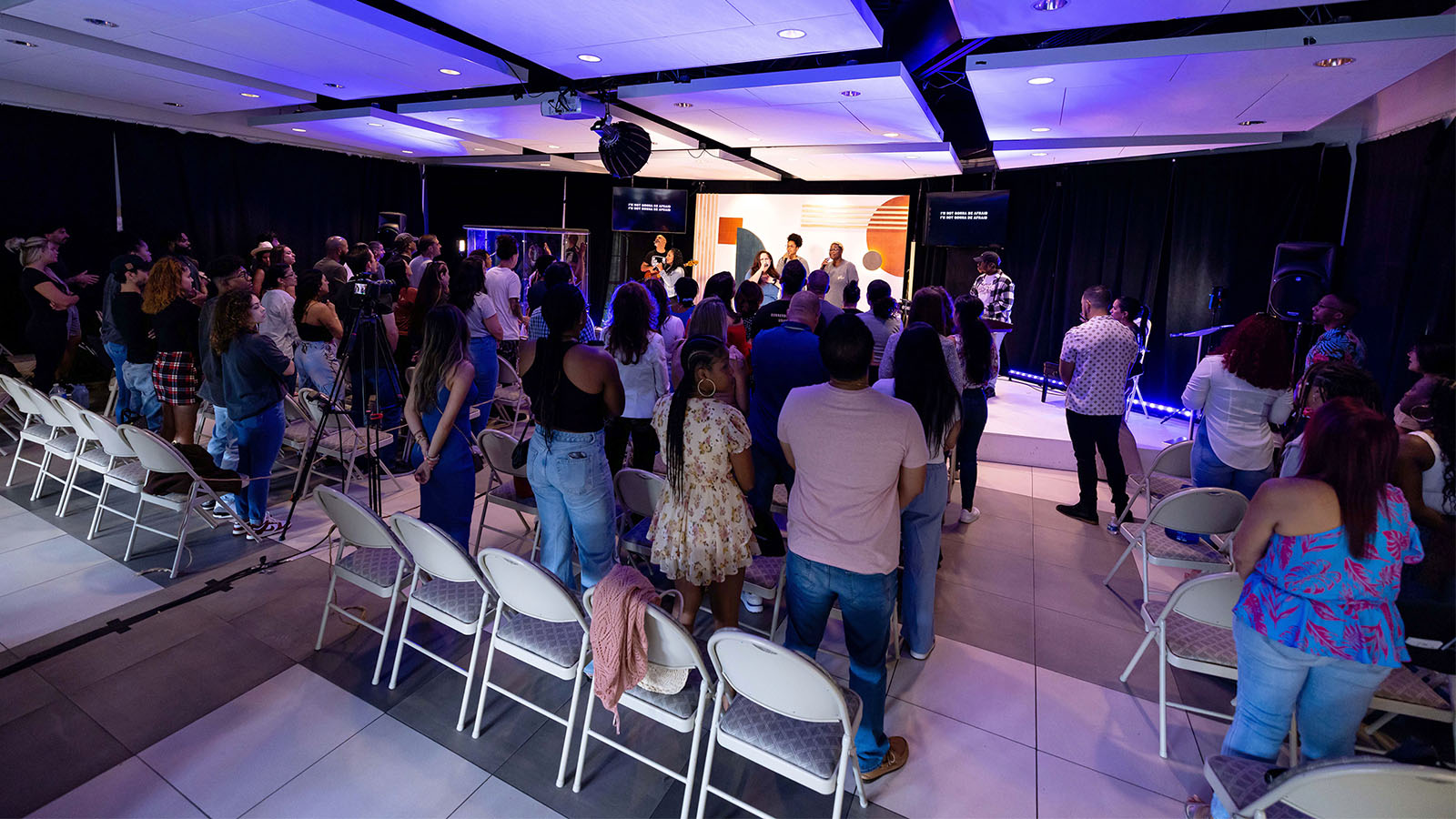
Musicians start a service at Heartway spiritual community in June 2023 in the Miami area. (Photo courtesy of Heartway)
That’s also the case for Aldea, another evangelical-church-turned-spiritual-community bound by values rather than beliefs.
“Our motto is ‘love, period,’” said Jake Haber, pastor of the Tucson, Arizona-based group. “We determine what these wisdom texts are saying through the lens of love, rather than determining what love means through the lens of a wisdom text.”
Because these communities were formed in reaction to evangelicalism, defining themselves by what they are, rather than what they are not, wasn’t always straightforward. In their early years, Heartway and Vinings Lake both struggled to avoid reinforcing the very binaries (in/out, right/wrong) they rejected initially.
“Sometimes exvangelicalis still hold very tight to their fundamentalism,” observed Felicia Murrell, an author and onetime teaching pastor at Vinings Lake. “They are still protesting. And there’s a place inside of them that needs everyone outside of them to believe what they believe.”
Instead of trying to win over their former evangelical peers to their version of spirituality, these groups have ultimately let go of the concept of conversion altogether. For them, doctrine, be it theologically conservative or progressive, is never prescriptive or a prerequisite.
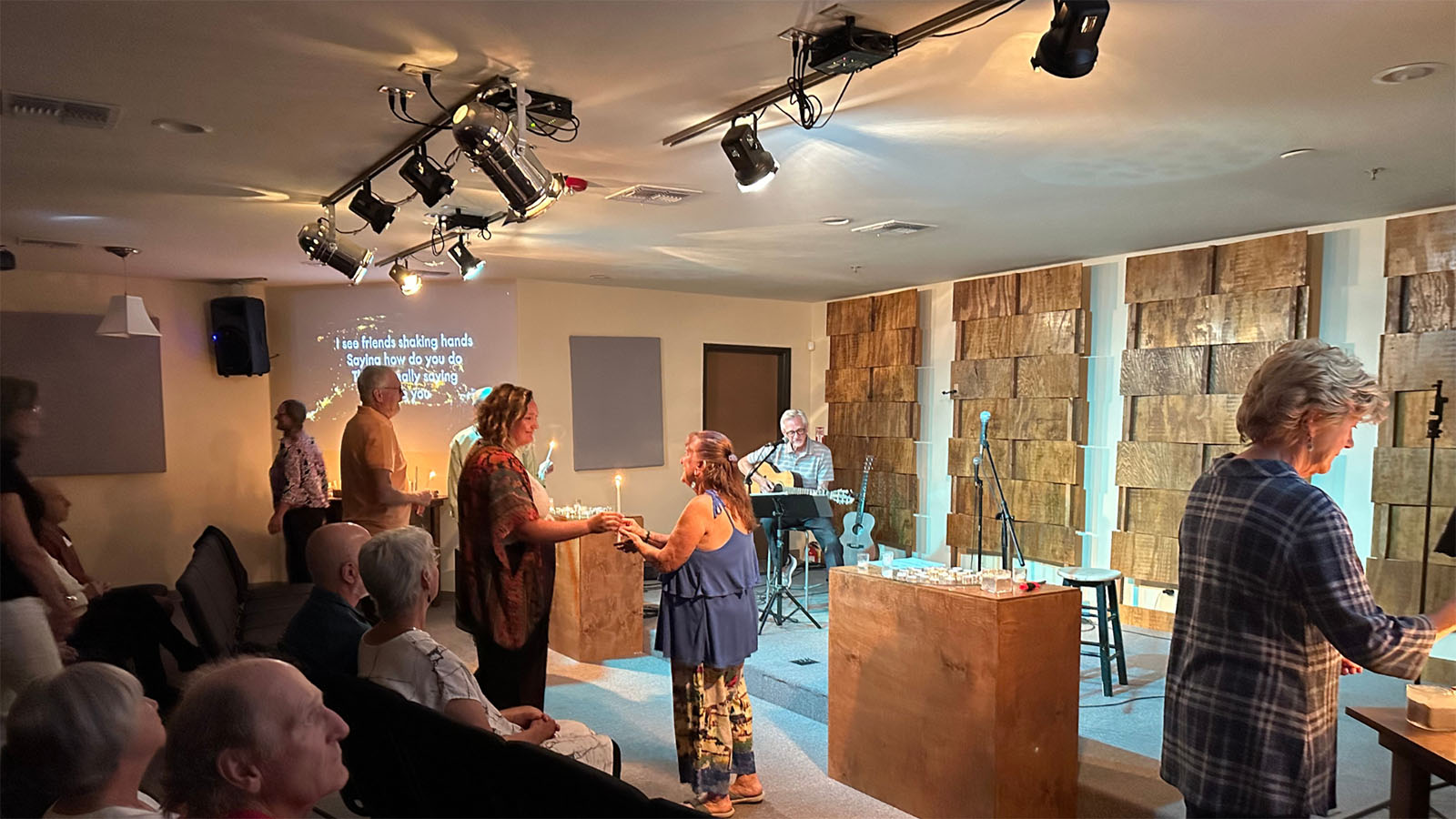
The Aldea spiritual community participates in a candle-lighting ritual at its space in Tucson, Arizona. (Photo courtesy of Aldea)
“I stopped feeling the need to try and convince the Christians that they were wrong,” Prada said about Heartway.
Vinings Lake, Heartway and Aldea espouse values over doctrine, including commitments to inclusion and diversity, enacting social justice, seeking wisdom from a variety of religious and spiritual traditions, viewing Jesus as a model for spiritual living and honoring lived experience as sacred.
How to translate these broad values to a congregational setting, though, isn’t self-evident, particularly when gatherings are populated by self-described religious mutts, with a full spectrum of opinions. Heartway has retained a seeker-sensitive model of worship music that incorporates the beats and electronic sounds of house music and hip-hop, while Aldea has opted for nonreligious music with spiritual themes from the likes of the Beatles or U2. At Vinings Lake, music is a low-key affair, with a person or two singing hymns or stripped-down songs about human flourishing.
While Deese typically grounds his teachings in the Bible (though it’s framed as a collection of inspired writings, not a list of answers), Haber’s talks are more based on the human experience than a particular text. All three pastors incorporate traditions beyond Christianity.
“Last weekend I was quoting the Tao Te Ching. Sometimes I quote the Bhagavad Gita. Other times I call different psychologists and philosophers that I bring into the conversation,” said Prada. “It’s an experiment, for sure.”
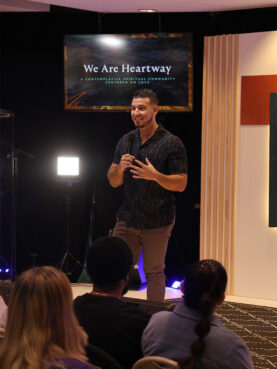
Danny Prada shares a message during a 2023 service at Heartway. (Photo courtesy of Heartway)
Shaped by their evangelical roots, these communities tend to adopt “low church” formats. Pastors wear sneakers, lobbies are equipped with coffee carafes and to-go cups, pulpits are rare and liturgies — where present — are minimal. At Vinings Lake, Communion is simply “the table”: a time during services where participants are invited to ingest the bread, gluten-free wafers, juice or wine displayed on a table in the center of the room. There’s little to no preamble and attendees can interpret the event however they wish.
“I find it really compelling that the night before Jesus was killed … he’s like, I have to get friends together,” Deese told RNS. “He gets his people together, even one that is going to betray him. And he sits at a table and raises up a glass, and the text says he gives thanks. For me, that ritual is the practice of gratitude once a week.”
Because of their experimental nature, some of the more granular details of these communities are still in flux. Without larger institutional scaffolding, what should safeguarding and accountability look like? How do you build student curricula based on spiritual values, not beliefs? The leadership takes different forms — Vinings Lake has a board of directors; Aldea has a leadership team; Prada described a group of “core leaders.” The financial and reputational costs associated with these communities — all of them reliant on attendees’ donations — also make them difficult to replicate. Churches wanting to try out similar models often risk losing congregants and severing ties with funders. These barriers can disincentivize people who already face hurdles in ministry from forming spiritual collectives of their own.
“I imagine that churches led by women, and churches led by people of color, particularly nondenominational churches that are no longer supported by a denomination, their budgets are already tapped,” said Murrell. So making polarizing statements, like becoming openly LGBTQ-affirming, she said, could “force the church to close its doors.”
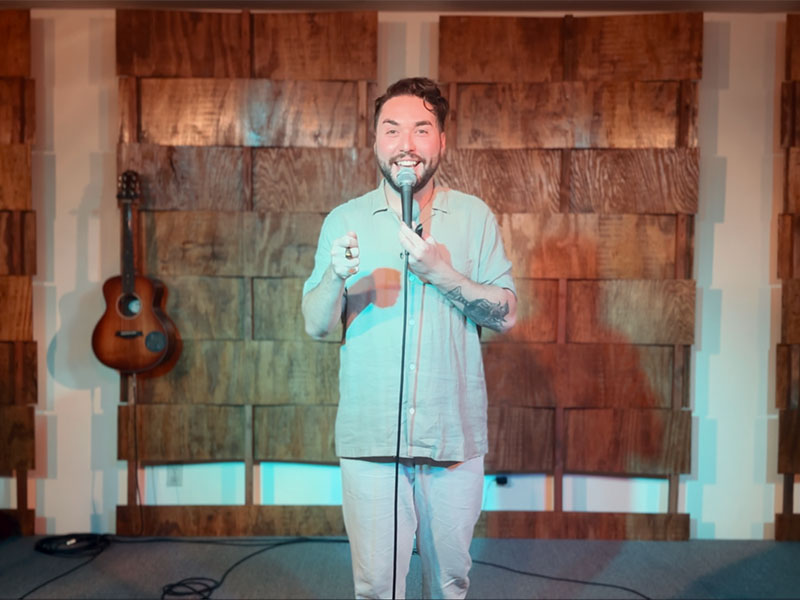
Jake Haber delivers a Sunday message to the Aldea spiritual community in Tucson, Ariz. (Photo courtesy of Aldea)
Despite the obstacles to forming like-minded collectives, Prada, Haber and Deese said it feels like their communities are on the edge of a much larger spiritual shift. Haber pointed to the decline of traditional Christianity and growth of the spiritual “nones” — earlier this month, Pew Research released data showing 22% of Americans now identify as “spiritual but not religious.” Of that group, Pew found only 11% say they are involved in a religious community.
“There’s a huge migration of people, but there’s not yet a system and a structure to meet them,” said Haber. “This is our best attempt at creating something we think could really work in this world.”
Source link

